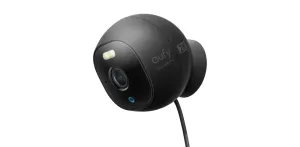Introduction: My Dive into the World of Wired Home Security Cameras
So, there I was, rummaging through a sea of online reviews and tech specs, trying to figure out if installing a wired security camera system in my home was the smart move. With a recent spike in neighborhood petty thefts, I thought, "Maybe it's time to beef up security around here." But as anyone who's ever fallen down the rabbit hole of home security gadgets knows, choosing the right system is anything but straightforward. Each one comes with its own set of features, pros, and cons.
What drew me towards wired systems initially was a sublime moment of frustration with my friend’s wireless camera dropping its connection just as we tried to figure out if the figure lurking in her garden was a burglar or just a raccoon. Reliability became my top priority.
Understanding Wired Home Security Cameras
Before we get deeper into pros and cons, let's clarify what wired security cameras are. Wired home security cameras are directly connected to your home's electrical system and internet network through cables. This setup is distinct from wireless models that communicate over Wi-Fi and might depend on batteries or power adapters.
It sounds simple enough, but as I quickly learned, the devil is in the details—or in this case, the cables!
The Pros of Wired Home Security Cameras
- Reliability and Stability: My first pat on the back for choosing a wired system came when I realized how steady the connection was. Unlike wireless cameras, which can suffer from interference and dropouts, wired cameras provide a constant, stable link. You don't have to worry about the Wi-Fi signal strength or changes in bandwidth usage. That peace of mind was like finally getting a good night's sleep after days of tossing and turning. (cnet.com)
- Quality of Stream: High-definition streams require robust data bandwidth. Wired systems can handle this demand more consistently than their wireless counterparts, providing clear images that can make all the difference when identifying someone on your property. It’s like the difference between watching a thriller in crystal-clear HD versus trying to fathom the plot through a foggy window.
- Scalability: When I considered expanding my security system—thinking, why not cover every nook and cranny of my home?—wired systems were clearly advantageous. They can support larger setups involving many cameras without compromising performance, unlike wireless systems that might struggle with too many devices on the same network.
The Cons of Wired Home Security Cameras
- Installation Complexity: The installation day was a saga of its own. Drilling holes, running cables through walls, and making sure everything connected correctly was more intense than I anticipated. It’s not something you easily change your mind about halfway through. It's definitely more invasive and permanent than setting up a wireless camera, which often just involves a few simple steps.
- Cost: Let’s talk numbers. While the cost of the cameras themselves might be comparable to wireless options, the installation for wired systems can add a notable amount to the total cost. This isn’t just about money—it’s about deciding if you're ready for that kind of commitment.
- Power Outages: Here’s a twist—during a power outage, unless you have backup power solutions, your fortress becomes as blind as a bat. This realization hit me during a stormy night when the power flickered and all went dark. Investing in an uninterrupted power supply (UPS) became my next unplanned expense. (yoshinopower.com)
Real-life Insights: Conversations That Shaped My Decision
Discussing with friends and family, I got mixed feedback. My cousin, an avid DIYer, claimed installing his wired system was the best decision ever. "Theft dropped by over 80% in our area," he boasted. On the flip side, a co-worker grumbled about the installation mess and how wires ruined her home’s aesthetic. My decision wavered every time I spoke to someone new.
But perhaps the most compelling moment came from an unexpected late-night chat with my neighbor, who shared a video clearly capturing a trespasser’s face, thanks to his wired camera’s superior image quality. That clarity in a critical moment seemed priceless.
Practical Takeaways: Is Wired the Way to Go?
If you’re considering wired home security cameras, here are a few bits to ponder:
- Assess Your Needs: Focus on why you need the system. Is it general surveillance, deterring potential thieves, or monitoring specific areas? Your primary need will dictate the features you should look for. For example, if front-door protection is your goal, check out video doorbell options.
- Consider Professional Installation: Unless you’re comfortable with substantial DIY projects, professional installation might be a worthy investment, avoiding headaches and mishaps.
- Plan for Contingencies: Think about backup power supplies and system maintenance to ensure your security isn’t compromised when you most need it.
In the end, I went with a wired system. Yes, it was a bit of an ordeal during setup, but now, every time I hear a bump in the night, a quick glance at my phone shows me exactly what’s happening outside, in crisp detail. It's like having superpowers—or at least, very powerful tools at my fingertips.
And there's something deeply reassuring about that.





